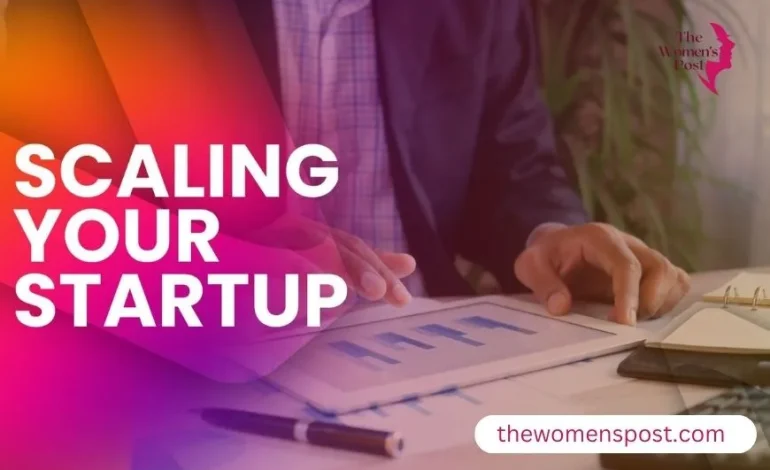What Legal Mistakes Should Women Entrepreneurs Avoid When Scaling Their Startups

Scaling up a startup, though an exciting phase for any entrepreneur, brings with it unique legal challenges that, if not well handled, may affect growth. Women entrepreneurs already face systemic barriers such as limited access to funding and bias in business transactions, and they should be aware of how to avoid legal pitfalls. Understanding and preventing these common legal errors in scaling women-led businesses can save time, money, and protect the business from future complications. Careful attention to these risks is essential for scaling startups.
Neglecting a Founders Agreement
One of the major legal mistakes that women entrepreneurs make while scaling is starting a business with co-founders without a proper founders agreement. Many founders embark on their startups based on friendship and trust, assuming that verbal agreements will be enough. As the startup grows, differences in vision, workload distribution, equity sharing, and the process of making decisions may cause serious disputes.
These would include well-defined roles and responsibilities, equity distribution, vesting schedules, exit strategies in the case of one of the founders leaving, and procedures regarding crucial business decisions. Without this document, a founder might face the loss of control in his company or a very long legal battle that may destroy the business altogether. The agreement also needs to cover what happens if a co-founder leaves before their one-year cliff to safeguard the remaining founders.
Failing to Protect Intellectual Property
For many startups, intellectual property is the most valuable asset, but it’s often overlooked by women entrepreneurs. Common IP mistakes include not filing for trademark and patent protection early enough, publicly disclosing technology before filing applications, and failure to secure IP ownership from employees and contractors.
Without signed IP assignment agreements, for example, a startup might not legally own the technology or creative work it has developed. This becomes particularly problematic during funding rounds or acquisition discussions when investors conduct due diligence. Each employment contract, contractor agreement, and co-founder document should contain clear IP assignment clauses stating that all work created for the company belongs to the company. Additionally, women entrepreneurs should conduct patent mapping and trademark searches prior to heavy investment in product development to ensure that their work will not infringe on existing protections.
Ignoring Employment Law Compliance

Also Read: Gaming Industry Trailblazers: Women Creating Inclusive Digital Spaces
One of the most expensive mistakes involves violations of employment law. Many women entrepreneurs make the mistake of misclassifying workers as independent contractors instead of employees to avoid paying taxes and providing benefits. If caught, this may result in major fines and an order to pay back wages. Many jurisdictions have strict tests to determine how workers are classified, based on considerations such as control, independence, and the nature of work performed.
Other common mistakes in hiring include not sending out written offer letters or employment contracts, failure to comply with wage and hour-related issues including meal breaks and overtime, not having employee handbooks that outline harassment and discrimination policies, and misunderstanding labor laws on minimum wages, provident fund payments, and maternity benefits. Though startups under government programs enjoy exemptions for certain labor laws for the first year, the entrepreneur should know which rules still need to be followed.
Overlooking Data Protection and Privacy Regulations
In the modern data-driven economy, compliance with data protection laws has become essential for start-ups. Women entrepreneurs handling customer data must ensure that they adhere to at least regulations like the Digital Personal Data Protection Act in India or international frameworks like GDPR if operating across borders.
Key compliance areas include data minimization and purpose limitation, proper consent management systems, robust data security measures and breach notification procedures, and appointing a Data Protection Officer for businesses handling sensitive information. Startups must implement privacy by design principles from the beginning, embedding data protection into their business model and products. Failing to comply can result in severe penalties, damaged reputation, and loss of customer trust. Many startups also forget to update their privacy policies and terms of service on their websites, which can lead to regulatory action.
Breach of Securities Law and Fundraising
When raising capital, women entrepreneurs must carefully navigate the securities laws to avoid serious legal consequences. Common mistakes include selling shares to investors, family, or friends without proper disclosures and filings; failing to comply with regulations set by securities authorities; and not understanding the exemptions from registration requirements.
Securities law violations may result in civil penalties, including disgorgement of funds, and even criminal charges. Specifically, a startup has to register its securities offerings or qualify for an applicable exemption. In such regards, when entrepreneurs are considering taking on venture capitalists or angel investors, they should consult with experienced legal counsel to ensure all the documents strictly meet regulatory requirements. This becomes especially important for startups planning to raise funds through equity or debt instruments, as they must adhere to specific guidelines on public and private offerings.
Accepting Unfavorable Investment Terms
First-time women founders frequently make critical mistakes when negotiating term sheets with investors, including accepting terms so skewed in favor of investors that they lose control of their own companies. Common warning signs include excessive equity dilution with investors taking more than 20% in early rounds, broad protective provisions giving investors veto rights over key decisions, anti-dilution provisions that protect investor ownership at the expense of founders, automatic renewal clauses or exclusive agreements which limit flexibility, and nebulous or restrictive board composition terms.
Founders should never sign term sheets with anything they don’t understand. Using the investor-recommended attorney can be a conflict of interest; that attorney might value the investor relationship over the founder’s interests. Women entrepreneurs also need to be careful that growth expectations set on the term sheet are those that fit their business model and vision; if not, the founder-investor relationship will likely sour quickly.
Using Inadequate or Generic Contracts

Also Read: Shaping The Future Of Leadership: Must-Have Skills For Women Leaders
Poor contracts hurt startups. Many women entrepreneurs operate via verbal agreements for significant business relationships or use online templates inappropriately. Generic templates are mostly devoid of critical context, may well be unenforceable in the relevant jurisdiction, and often omit industry-specific problems.
Basic contract requirements would include: clearly stated terms of payment and its consequences; specific rights and notice periods for termination; limitations on liability and indemnification clauses; dispute resolution processes; confidentiality and intellectual property ownership; data protection and regulatory compliance. In vendor contracts, those factors entrepreneurs need to look out for are payment terms, which may require them to wait 90-120 days for payment; acceptance criteria describing when the software or services are considered complete; insurance coverage required; and source code escrow for technology products. Missing or vague termination clauses can keep startups in unfavorable, costly agreements with no way out.
Choosing the Wrong Business Structure
The mistake of opting for the wrong type of legal entity can be costly and may have long-term repercussions for a startup. Many women entrepreneurs either do not register any form of business structure and operate as sole proprietors with unlimited personal liability or choose the wrong entity type without understanding its implications.
Business structure impacts taxation, personal liability protection, the ability to raise venture capital, and qualification for specific government benefits. For instance, venture capitalists will often prefer a corporation over an LLC or a partnership due to stock option benefits and certain tax advantages. Thirdly, entrepreneurs have to ensure proper corporate documentation such as articles of incorporation, bylaws, meeting minutes, and stock certificates; this protects the corporate veil that shields personal assets from any business liabilities.
Neglecting Insurance and Risk Management
Insurance is not just an additional cost but rather an investment in the future of the start-up. Many women entrepreneurs overlook some valuable insurance that protects them from unforeseen circumstances. There are other forms of insurance, which are legally compulsory once staff is employed, such as workers’ compensation.
The important insurance policies include general liability for bodily injury and property damage claims, commercial property for physical assets such as equipment and inventory, professional liability against claims of errors or negligence in services, cyber liability for data breaches and cyberattacks, and errors and omissions coverage. Large customers and vendors often require startups to maintain specified levels of insurance coverage as a condition to doing business. Without adequate insurance, entrepreneurs are faced with having to pay out-of-pocket damages or legal claims, which can be financially devastating for an early-stage company.
Not Consulting Lawyers in Due Time
Perhaps the most dangerous mistake women entrepreneurs make when scaling startups is waiting too long to get legal advice. Most view lawyers as a “big company” expense and try to handle legal matters themselves. However, a quick consultation early in the startup journey can prevent costly mistakes that are far more expensive to fix later.
Legal advice for women founders in avoiding the mistakes of growth includes writing and reviewing founders agreements, protecting intellectual property, understanding employment law and contractor classifications, knowing your securities law for fundraising, reviewing investment term sheets and contracts, setting up the proper corporate structure and governance, and adhering to industry-specific regulations. The investment in legal counsel during this critical scaling phase will allow women entrepreneurs to avoid the top legal mistakes for women entrepreneurs growing companies.
Scaling a startup involves navigating through a lot of difficult legal ground. Women entrepreneurs who make it a point to address these common legal mistakes put themselves out front for sustainable growth, protection of valued assets, and a reputation that commands respect among investors and other partners. It might be painful to invest time in laying a proper legal foundation, but that is where scaling successfully begins. Successful scaling startups mean recognizing and trying to avoid the legal mistakes women entrepreneurs make while scaling to ensure they can enjoy their journey without any legal hindrances.









